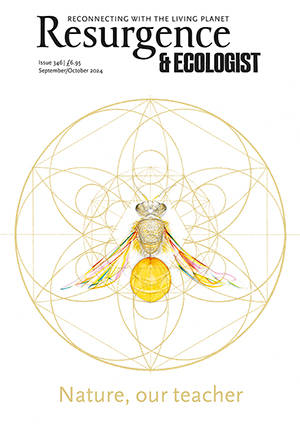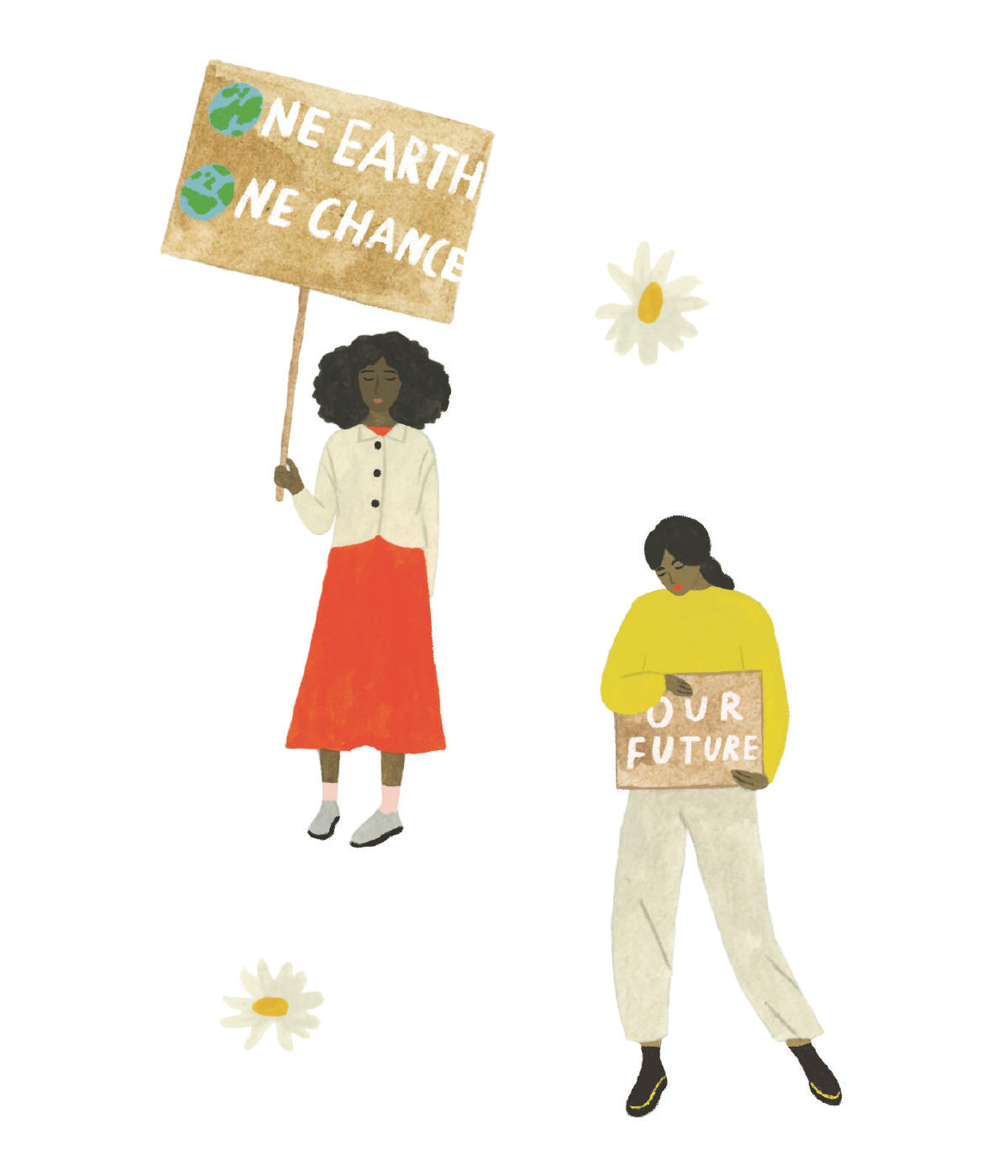This book is an expression of Green philosophy; a working-through of what a unique, complete system could deliver: a vision.
I was often asked as Green Party leader, ‘Are you a socialist?’ Or accused of being a ‘watermelon Green’: red on the inside, green on the outside. At times the fruit analogies went wild: mango greens, spinach greens – quite enough for the weirdest smoothie. My answer was always no, ‘I am a Green.’
As the philosophical basis of the Green Party of England and Wales says, ‘economic and environmental justice are indivisible’. Virtually all Green parties around the world are on the left of the political spectrum in traditional framing. But Green political philosophy goes much further from the status quo than socialism. It is built around the realities of the twenty-first century, not the nineteenth.
Why is social justice Green?
There can be no such thing as a coherent right-wing Green political philosophy. (Which is not to say that some people do not claim such, but being in favour of conserving species or ecosystems without understanding the underlying causes of their destruction is conservationism, not a political system.)
In the UK we are using our share of the resources of three planets every year. We have to get back to one-planet living, fast, but if the direction was ‘everyone cut back by two-thirds’, that would leave a lot of people dead: the people already switching off the heating in winter and shivering because they cannot afford the bill; the people skipping meals now so their kids can eat.
So, the people currently consuming a lot, the rich, have to consume a great deal less. Many people now need access to more resources and, particularly, secure access to those resources: certainty that they will be able to put food on the table and keep a roof over their head. That is true in the UK; when the scale is global, it is massively more true. There are enough resources on this planet for everyone to have a decent life, for the climate and Nature to be restored, if we just share them out fairly.
Co-creating the world
Green politics also has a different vision of what political leadership looks like. Coming out of Victorian times, the older political philosophies have never shifted away from the ‘Great Man’ theory. The leader determines the direction, the image, and a party stands or falls on the shoulders of one person. That’s really bad, practically: everyone makes mistakes, is human, has flaws in their character, and as Jacinda Ardern recently had the courage to admit, gets tired. And it is really bad for the quality of decision-making.
One of the messages I have co-created with many others over the past decade is that politics should be what you do, not have done to you. And everyone can do politics. I am not chiefly referring to voting in elections, standing in them, campaigning in them. I mean organising a litter-pick, starting a campaign for a pedestrian crossing so the kids can get to the park safely, school classmates getting together to demand change in their school curriculum. Or making a TikTok video or starting a petition.
‘Take back control’ was the sentiment that won the 2016 Brexit referendum for Leave, but behind it was a message that you are powerless, and you need someone – a celebrity leader, be it Jeremy Corbyn or Nigel Farage – to ride to your rescue. The Green message is different – it says, ‘you can make a difference’. We will help, we will support, but it is up to you to both choose the direction and provide the propulsion.
A truly democratic world, with local decision-making feeding upwards to new global patterns, will not look exactly like I, or the Green Party, imagine today. And that is fine. But the product of the energy, time and talents of billions of humans, working with respect for and in cooperation with all of the living creatures on this planet and the immensely complex ecosystems on which they and we depend, can be a truly caring, humane, just world.
We do not have to repeat the 1930s and 1940s. It is our choice to seize the democratic power to stop it happening, to turn away from that far-right leader shouting crude insults at anyone they determine an enemy of ‘the people’. We can jointly choose a positive direction for people and planet, rethink the ways our societies operate, restore that which has been frayed and worn down, rebuild anew a sustainable, caring, joyful way of living.
This is an edited extract from Natalie Bennett’s new book Change Everything: How We Can Rethink, Repair and Rebuild Society, published in paperback by Unbound. unbound.com/books/change-everything







